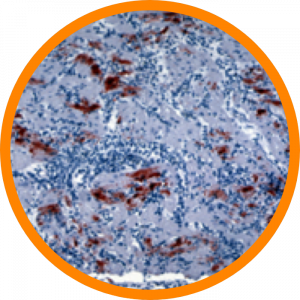Overview

Newcastle disease virus (NDV) is a contagious and fatal viral disease affecting most species of birds, including poultry. A death rate of almost 100 percent can occur in unvaccinated poultry flocks.
Exposure of humans to infected birds (for example in poultry processing plants) can cause mild conjunctivitis and influenza-like symptoms, but the NDV otherwise poses no hazard to human health.
NDV is spread primarily through direct contact between healthy birds and the bodily discharges of infected birds. The disease is transmitted through infected birds' droppings and secretions from the nose, mouth, and eyes. NDV spreads rapidly among birds kept in confinement, such as commercially raised chickens. NDV affects the respiratory, nervous, and digestive systems.
Symptoms are variable depending on the strain of virus, species of bird, concurrent disease and preexisting immunity. The incubation period for the disease ranges from 2 to 15 days.
Sources: Merck Manuals, ScienceDirect
OUR FOCUS
CERID is working with colleagues to develop an accessible method of distributing NDV vaccine to low-resource and backyard poultry farmers around the world.
Associated labs



